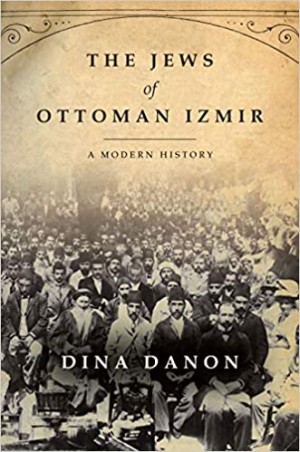A Jewish Turkish billionaire is killed in a boating accident in the Sea of Marmara off the coast of Istanbul. His last phone call is rejected by his estranged brother. Five years later, the brother arrives at the scene of the accident and slowly finds himself in a position to determine what really happened and why. The mystery and the history begin.
The government and the media report the death as a tragic accident. Avram Benezra knows his brother Yusuf was a world-class swimmer and head of a highly successful telecommunications firm, but knows little else of his brother’s recent life, connections, beliefs, and expectations, or of their family history. What was Yusuf doing, and what does Turkish history have to do with Yusuf Elmas’s death?
Robert Rosenberg subtly unfolds and weaves the plot in this most thoughtful and beautifully written novel, ensnaring readers in chapter after precious chapter. Avram, as the narrator, cycles in and out of the past and present, as the two brothers grow up to lead completely different lives in post-World War II Istanbul, where their family’s roots date back to the Inquisition as part of the vibrant Jewish community within the Muslim country and their struggling, working-class parents’ lives are centered around Yusuf’s cystic fibrosis — treatments, medications, therapeutic regimens, and medical bills.
Under financial stress, their father, Emil, buys a small cottage on nearby Princes’ Island for the family to spend healthy idyllic summers. The boys swim, fish, and are surrounded by a loving extended family. But after the cottage is grudgingly sold and their mother’s untimely death, the family begins to break apart. Bitterness, anger, resentment, and secrets fueled by jealousy, suspicions, and illness seal the estrangement. Avram marries Naomi, moves to Ankara, and leads a quiet life as a company architect with twin daughters upon whom he dotes.
Meanwhile Yusuf beats all the odds: despite a period of dropping out and wandering, his intelligence, creativity, and steely determination yield him great business success. Yusuf becomes a world-famous celebrity and acquires the reputation of a womanizer, political hobnobber, and jet-setting magnate. As a final insult to his family, he changes his name and denies his traditions.
Yusuf, who always vowed he would come back to his beloved summer island, buys a mansion retreat there. Another side to him emerges as he spends time interacting with the rhythms and days of the island people and his hired help.
Five years after Yusuf’s death, Avram is surprised to discover that Yusuf left the mansion to the father he hated and never contacted since leaving. With his marriage in jeopardy and no prospects for employment, Avram decides to repair the untended property for his father with the help of Yusuf’s former employees. The cook, Flora Demopoulous — whose daughter Yasemin died in the accident with Yusuf — is wary, belligerent, and caustic. She slowly learns to trust Avram and helps him to piece together the mystery of Yusuf’s life. Avram methodically narrates the details of who his brother became, what he believed in, and why he undertook the causes he did: speaking out publicly about the Armenian Genocide in a country where that subject had long been ignored and unspoken, and consumed by the stories and memory of the ships bombed or left adrift near Istanbul carrying Jews hoping to escape Nazi Europe. The wrecks of the Salvador and Struma lured Yusuf to dangerous encounters with many who want the evidence left at the bottom of the sea rather than exposed to the world.
The manner of how a close fraternal relationship comes apart is played out against world events and Turkish cultural and political life, woven throughout a story that provides a complex perspective on its geographical and historical setting, in which personal convictions are at the heart of the struggles of the finely drawn, strong, and engaging characters. Isles of the Blind is a powerful, most satisfying, and enticing novel, and a highly recommended read.
Renita Last is a member of the Nassau Region of Hadassah’s Executive Board. She has coordinated the Film Forum Series for the Region and served as Programming and Health Coordinators and as a member of the Advocacy Committee.
She has volunteered as a docent at the Holocaust Memorial and Tolerance Center of Nassau County teaching the all- important lessons of the Holocaust and tolerance. A retired teacher of the Gifted and Talented, she loves participating in book clubs and writing projects.




